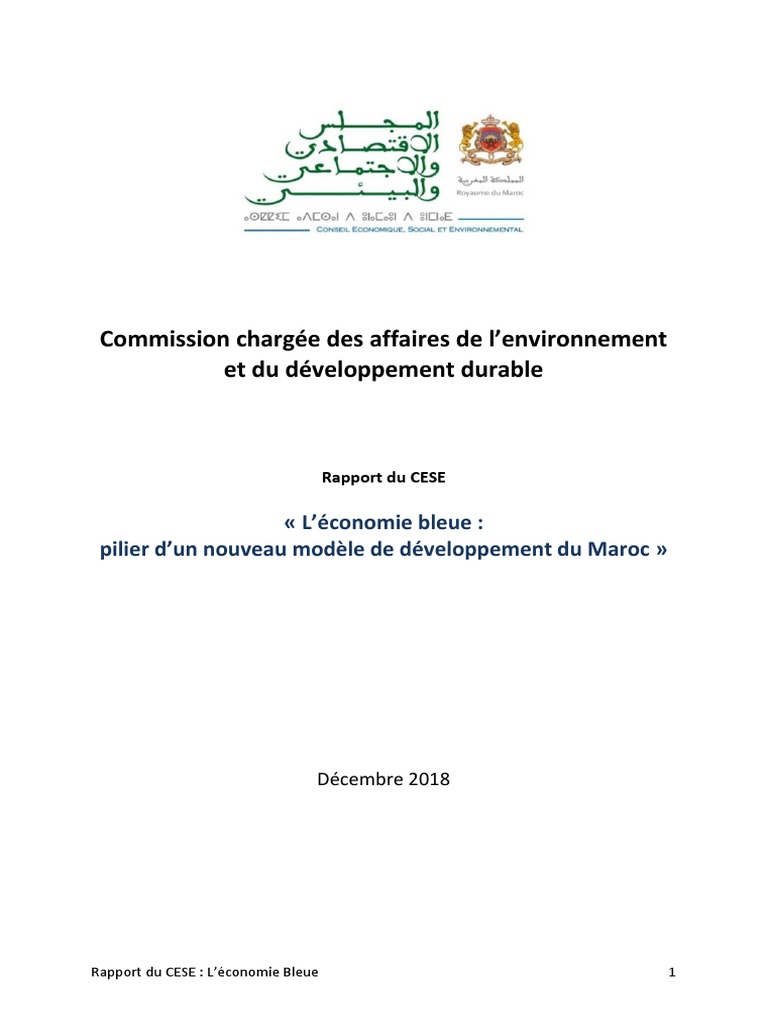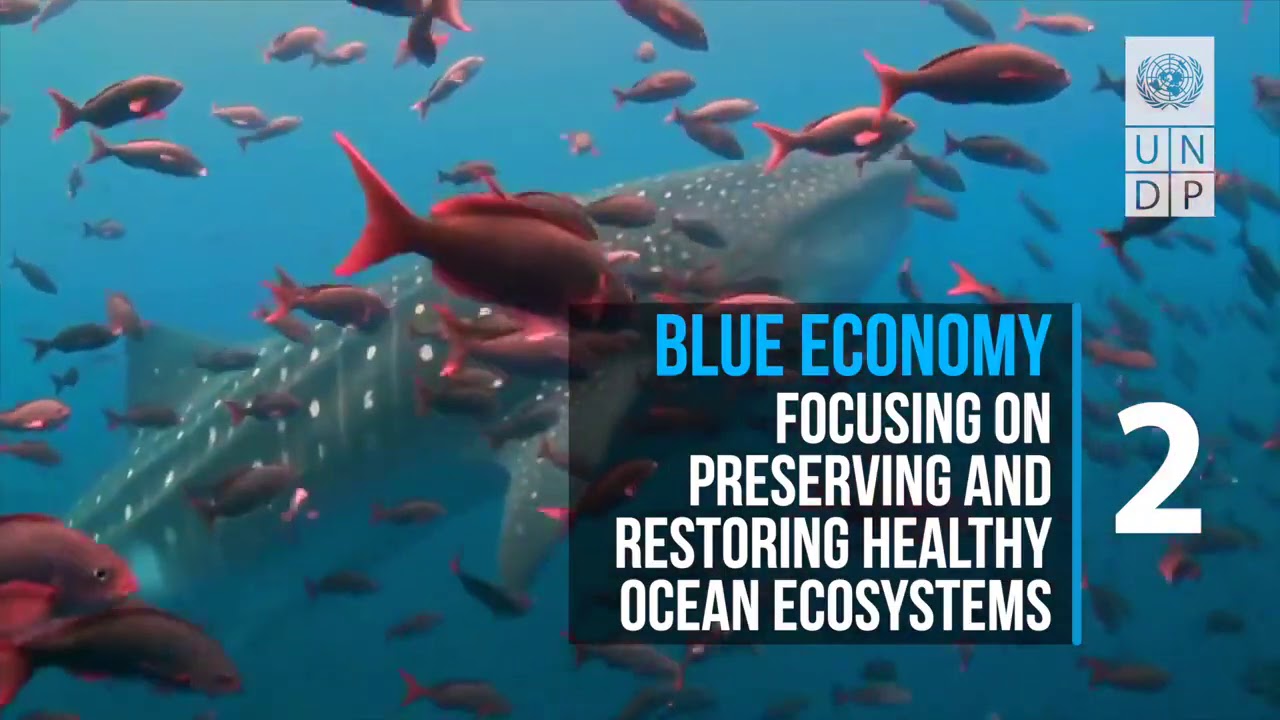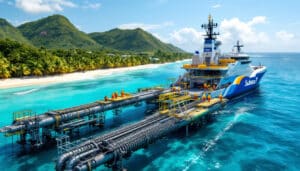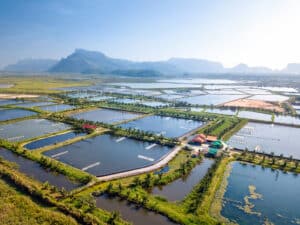The oceans, covering more than 70% of our planet’s surface, play a crucial role in climate regulation, biodiversity and global economies. However, today they face unprecedented challenges, such as climate change, pollution and overexploitation of marine resources. To build a resilient ocean economy, it is imperative to adopt sustainable practices that combine environmental protection and economic growth. This involves rethinking our relationship with the sea, encouraging technological innovation, promoting inclusive maritime policies and raising awareness among economic actors and civil society of the importance of preserving this vital capital for future generations. Faced with these challenges, it is time to act together to build sustainable solutions that will preserve our seas while supporting the communities that depend on them.
| Strategic axis | Recommended actions |
| Protection of marine ecosystems | Promote marine protected areas to preserve biodiversity. |
| Technological innovation | Invest in sustainable technologies for the exploitation of maritime resources. |
| International cooperation | Strengthen alliances for integrated ocean management. |
| Circular economy | Encourage recycling and reduction of marine waste. |
| Adaptation to climate change | Develop resilient infrastructure in the face of climate risks. |
- 1. Promotion of renewable marine energies
- Investing in offshore solar and wind technologies.
- 2. Protection of marine ecosystems
- Create maritime reserves to preserve biodiversity.
- 3. Development of sustainable fishing
- Establish quotas that respect fish stocks.
- 4. Innovation and maritime research
- Support R&D for sustainable and resilient practices.
- 5. Integrated coastal management
- Adopt a collaborative approach between stakeholders.
- 6. Awareness and education
- Train communities on the sustainable use of maritime resources.
- 7. Strengthening coastal infrastructure
- Build infrastructure resilient to climate change.
- 8. Support for maritime communities
- Promote local economic solutions for resilience.
- 9. International collaboration
- Work with other countries for global conservation strategies.
- 10. Use of the circular economy
- Encourage recycling and reduction of waste at sea.
Table of Contents
ToggleStrategies to Strengthen the Ocean Economy

Strengthening the ocean economy relies on several strategies key. Among these, the promotion of sustainable practices is essential. By promoting the responsible use of marine resources, it is possible to limit the negative impacts onmarine ecosystem. This includes measures such as reduction of plastic waste and the implementation of more selective fishing techniques to preserve biodiversity.
The development of blue economy initiatives constitutes another crucial axis. For example, the exploitation of renewable marine energies can not only meet energy needs but also reduce carbon footprint. Ethical aquaculture also plays a major role in providing marine foods while respecting ecosystems.
THE international partnerships are essential for the establishment of coherent and effective policies. Cooperation between countries makes it possible to strengthen innovation capacities and share good practices. Agreements like those between Morocco and the EU for a common strategy are examples of fruitful collaboration.
To fight against marine pollution, it is imperative to put in place effective monitoring and management systems. Raising public awareness through educational campaigns and beach clean-up initiatives can also help reduce pollution and protect marine habitats.
Encourage the maritime ecological tourism is another promising strategy. By encouraging visitors to adopt environmentally friendly behaviors, it is possible to generate revenue while minimizing the impact on marine ecosystems. This includes activities like eco-friendly diving and stays in protected marine reserves.
Innovation and sustainable technologies
The ocean economy faces major challenges such as climate change, there marine pollution and overexploitation of resources. It is crucial to develop effective strategies to strengthen this economy in a sustainable manner. This involves global collaboration between governments, businesses and local communities to protect and preserve marine ecosystems while profiting from their resources responsibly.
To build a resilient ocean economy, innovation and sustainable technologies play a central role. Technological progress not only allows us to better understand the oceans, but also to develop solutions to protect them. For example, the renewable marine energies offer enormous potential to produce clean energy without disrupting marine ecosystems. Ethical aquaculture and sustainable management of marine resources are also important areas to guarantee environmentally friendly exploitation.
Marine renewable energy projects, such as offshore wind turbines and tidal turbines, can contribute significantly to green energy production. By focusing on technological innovations, it is possible to reduce the environmental impact of these installations and optimize their efficiency. Furthermore, promoting ethical aquaculture makes it possible to meet growing food demand without depleting natural resources. This includes implementing sustainable fishing practices and rehabilitating damaged marine habitats.
Another essential aspect to strengthening the ocean economy lies in education and public awareness. Encourage the maritime ecological tourism can not only stimulate the local economy, but also raise visitors’ awareness of marine protection issues. Beach clean-up initiatives, educational programs and awareness campaigns are all actions that can have a positive long-term impact.
Policies and governance play a crucial role in the blue economy. Strategies such as those detailed in Africa’s blue economy plan show how effective coordination can catalyze sustainability initiatives. Furthermore, events like the Blue Africa Summit illustrate the importance of international cooperation to share knowledge and best practices.
International partnerships and collaboration
To build a resilient ocean economy, it is crucial to adopt innovative and sustainable strategies. This includes the implementation of practices that take into account both the preservation of marine resources and economic development.
One approach is to promotetechnological innovation in the maritime sector. Technological developments can offer solutions for more sustainable fishing, better resource management and the development ofrenewable marine energies. Support for the sustainable growth of the maritime economy is essential.
Promoting initiatives in blue economy is also a priority. These initiatives aim to use the ocean sustainably, preserving marine ecosystems while promoting viable economic activities such asethical aquaculture and the maritime ecological tourism.
To protect marine ecosystems, it is necessary to fight against marine pollution and to implement concrete actions in terms of conservation. There global declaration for the protection of the oceans is an example of a collective approach in favor of the sea.
THE international partnerships play a key role in building this resilient economy. Cooperation between nations allows sharing knowledge, technologies and strategies to face challenges such as climate change which impacts the oceans. Participation in global forums and to joint projects can stimulate innovation and strengthen countries’ capacities to implement sustainable practices.
By adopting these strategies, it becomes possible to reconcile sustainable development and ocean protection, thus guaranteeing responsible use of marine resources for future generations.

FAQ: How to build a resilient ocean economy in the face of contemporary challenges?
A: The ocean economy faces challenges such as climate change, ocean pollution, overfishing and loss of marine biodiversity.
A: Climate change is causing ocean temperatures to increase, water acidification and sea levels to rise, affecting marine ecosystems and coastal communities.
A: Actions include establishing regulations for sustainable fishing, protecting maritime zones, promoting marine renewable energy and encouraging research into marine ecosystems.
A: Local communities play a crucial role in being stewards of their maritime resources, adopting sustainable management practices and contributing to the monitoring and protection of their maritime environment.
A: Scientific research is essential for understanding marine ecosystems, assessing the impacts of human activities and developing effective conservation strategies.








